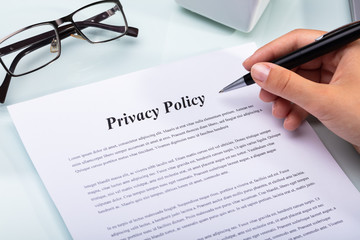
FAL
Staying on top of your legal requirements as a business owner can be overwhelming. Especially so when you’re running a start-up. Therefore, it’s no surprise that many businesses don’t have the fundamental legal documents in place – leaving themselves open to issues that could potentially derail their business.
Here is a list of eight legal documents every business should have on hand to ensure a solid foundation for growth.
The Most Important Legal Documents for Starting a Business:
Company Constitution
A Constitution is a contract between the company and each member (or shareholder), director, and other officer that sets out how a company is to be governed and run.
While companies do not need a constitution, they will otherwise need to rely on ‘Replaceable Rules’ set out in the Corporations Act 2001 (Cth). Replaceable Rules are one-size-fits all and do not take into account your business’s unique requirements. Therefore, it is highly recommended that businesses create their own company constitution.
Consent to Act Form
To form as a company, your business must have an officeholder.
An officeholder is responsible for ensuring a business complies with laws set out in the Corporations Act 2001 (Cth). A company’s officeholder will typically be its director or secretary.
To appoint an officeholder for your company, that person must sign a consent to act form.
Joint Venture Agreement
You may want to partner with another business in order to achieve you would not be able to achieve (at least as quickly and easily) on your own.
This is where Joint Venture Agreements come in. A Joint Venture (JV) Agreement is a contract between two or more parties to collaborate and work together to achieve a shared aim or goal.
The terms of a Joint Venture Agreement include:
- The name, purpose and objectives of the JV.
- The contributions to be made by each party.
- The activities to be undertaken by the JV, both now and in the future (and how the parties are to agree on those activities).
- Whether one of the parties is going to act as agent for the JV for certain purposes (such as maintaining a JV bank account and entering into contracts).
- The IP to be made available to the JV and the terms of its use.
- The ownership, use, and protection of new JV IP.
- The commercialisation of IP the JV creates.
- The management of the JV (such as through a committee made up of the parties’ representatives).
- Liability, warranties, and protection against losses or other financial burdens.
Collaborative Research and Commercialisation Agreement
A Collaborative Research and Commercialisation Agreement allows businesses to collaborate and work together toward a common goal without the commitment and ties of a Joint Venture.
A Collaborative Research and Commercialisation Agreement details how collaborative work will be carried out, the ownership of the outcomes and commercialisation rights.
Key terms of a Collaborative Research and Commercialisation Agreement include:
- Details of the collaborative work now and in the future (and how the parties are to agree on future work).
- The contributions to be made by each party (cash, in-kind, IP etc).
- The standards parties must meet when conducting the work.
- The milestones to be achieved and deliverables to be provided at each milstone.
- Access to the facilities of another party to conduct the collaborative work.
- Oversight and management of the joint activities, such as through a committee made up of representatives of the parties.
- Specific provisions for the transfer of any materials.
- The contribution and use of existing IP of a party.
- The ownership of the IP outcomes from the collaboration.
- The rights to commercialise the outcomes, including shares of commercial revenues.
- Confidentiality and rights to publish information about the work and its outcomes (this is often very Important to universities and other research organisations).
Consultancy Service Agreements
External consultants can be important assets to businesses, especially those that are just starting out and looking to grow.
Consultancy agreements set out the nature of a consultant’s role within your business. Including:
- The exact nature of the services the consultant will provide.
- The consultant’s compensation.
- The rights to the results of the consultant’s work.
Distribution Agreement
Distribution Agreements enable your business to engage another organisation (a distributor) to distribute and sell your products.
A distribution agreement will outline the scope of the distributor’s obligations, such as:
- Where, how and for how long the distributor can sell your products,
- What advertising and promotion they can conduct.
- The distributor’s after-sales service responsibilities.
License Agreements
A license agreement allows a business to license the rights to their intellectual property to another business (a licensee).
A license agreement will includes the terms in which you are licensing your IP, including:
- How long the license lasts for.
- Payment terms (whether the licensee must pay an upfront license fee and/or ongoing royalties).
- Whether the licensee has exclusive rights to your IP or you can grant further licenses to other organisations.
- Which territories/jurisdictions the licensee can use your IP. This is important if you would like to take advantage of licensing to sell your products in other countries, but want to retain exclusive rights to sell your products in your home country.
Shareholders Agreement
If you are founding your business alongside other people (whether they are actively involved or investors only) and/or plan to sell equity in your company in the future, a shareholders agreement is an important legal document.
The Shareholders Agreement records each party’s expectations in relation to the governance, operation and potential sale of your business.
A shareholders agreement will detail each shareholder’s rights and responsibilities. Terms can include
- The nature of current and potential business activities.
- What matters require shareholders’ approval.
- The approach to distributing dividends and seeking further investment for your business.
- Whether shareholders can transfer their shares to a third party.
- Whether shareholders must sell their shares if the company is sold, or if another shareholder sells their shares.
Having a shareholder’s agreement eliminates the risk of a costly dispute between your business’s shareholders should any issues covered in a shareholder’s agreement arise.
Get the Legal Documents you Need to Start Your Business
Looking to start a business? Flying Start Up have got you covered!
Flying Start Up provides fully customisable templates for all of the above legal documents, so you can meet your business’s legal obligations without spending a fortune on lawyers.
Developed by expert technology and startup lawyers, Flying Start Up is easy to use and will save you time and money. Get started today and take your business to new heights!
Visit the Flying Start Up website today to find out more.
Or if you do need further assistance and legal guidance tailored to your business, our start-up law experts can help.
We work with you to give your start-up a solid legal foundation based on your business’s unique requirements. We do this by understanding your business, your goals and your plans for the future.
To find out more and see how we can help your business grow, contact our team today.
.png?width=675&height=338&name=Untitled%20design%20(8).png)
.png?width=100&height=50&name=Untitled%20design%20(15).png)
.png?width=800&height=800&name=Untitled%20design%20(57).png)


